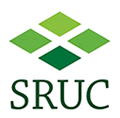In recent years there has been in increase in domestic protein production to reduce the reliance on imported protein and develop more sustainable sources. The use of insects as a protein source in animal feeds and oil within the petrochemical industry can also act as a viable waste treatment process for a number of organic wastes (e.g. food and distilling wastes). In addition the production of insect faeces (Frass) has the potential to be upcycled as soil improving fertiliser product. However, to date little is known about the composition of frass, in particular the effect of the dietary substrate used within the insect farming and its potential use as a biofertiliser or soil improver. If shown to be an effective soil improver frass could contribute circular bioeconomy goals in food production and provide an alternative to synthetic fertilisers and peat-based composts.
A pilot study was conducted (2019) in collaboration with Zero Waste Scotland, assessing crop growth across soil-only, soil-compost and soil-frass mixtures. Black solider fly (BSF) frass from three dietary sources were used with results showing both positive and negative implications for crop growth. Soil mixed with frass derived from pre-commercial food-waste was shown to act as a slow-release fertiliser, performing better than the soil-only and soil-compost treatments in terms of lettuce production.
This PhD studentship will develop upon recent findings to experimentally investigate the range of insect frass available, its composition and its effectiveness as a biofertilizer and its contribution to cirucular bioeconony. Factors such as the variability in frass composition, assessing soil-frass mixtures for optimal plant/crop growth and the implications of frass use on soil health and crop composition will be investigated as well as the potential for frass to be pyrolyzed for biochar production. In addition to investigating the practical applicability of frass material in crop production, the project will explore legal requirements (such as Waste Management Licensing (Scotland) Regulations 2011), certification (Pas100) and socio-economic implications for its use and key ethical questions to consider. This is a novel area of research with few previous studies conducted and so there is scope for the student to drive the direction of this research in many directions.
Application Process:
Please visit this page for full application instructions http://www.eastscotbiodtp.ac.uk/how-apply-0
1) Download and complete the Equality, Diversity and Inclusion survey.
2) Download and complete the EASTBIO Application Form.
3) Submit both to SRUC, [Email Address Removed].
Completed applications must include the following documents:
- Completed EASTBIO application form
- 2 References (to be completed on the EASTBIO Reference Form, also found on the EASTBIO website)
- Academic Qualifications
- Equality, Diversity and Inclusion survey
Unfortunately due to workload constraints, we cannot consider incomplete applications. Please make sure your application is complete by the 16th December 2021. Please ask your referees to submit your references directly to [Email Address Removed].
We anticipate that our first set of interviews will be held 7th – 11th February 2022 with awards made from 18 February.

 Continue with Facebook
Continue with Facebook

